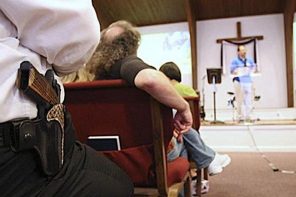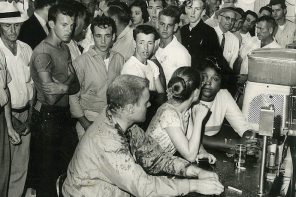A few days before the election, when it was clear from the polls that, barring shenanigans, Barack Obama was going to be elected the 44th president of the United States, I had an interesting conversation about the meaning of the election for black preachers. My colleague asked, preacher-to-preacher, “How will your preaching and talking about race change if Obama is really elected?”
Initially, I dismissed the idea that the election results would change my thinking or preaching in any way, since I have always believed and proclaimed that with God anything is possible.
At 11 p.m. Eastern time, 4 November 2008, CNN and other networks called the election in Obama’s favor. What had seemed so unlikely just a few months before had come to pass. I paused then to consider my colleague’s question, and was momentarily convinced that nothing fundamental was different. But I had to reconsider my position the next morning as I drove to work listening to the public radio station for New York City.
Among all of the callers who expressed their New York Democratic glee, a conservative Republican who had voted for John McCain called in to say that while he was driving home after the election, he thought about the fact that when he was born in the early 1960s, many African Americans were not allowed to vote and their children were attacked by dogs and with fire hoses for trying to go to school.
Remembering that, he realized that there was reason to celebrate Obama’s victory. Much as McCain himself had done in his concession speech, this McCain supporter recognized that something great had happened in and to America.
The memory of what the United States was and the recognition of what we have become highlights the moral leadership and legacy of Rev. Dr. Martin Luther King Jr., whose commitments we celebrate in the holiday that bears his name. Throughout the election season, candidates acknowledged the significance of Dr. King’s vision and claimed his legacy for themselves as individuals and for the process of the primary and general election itself.
From Hillary Rodham Clinton’s speech commemorating the Selma demonstrations to John McCain’s speech on November 4—and especially emphasized in Barack Obama’s acceptance of the Democratic nomination on the 45th anniversary of the March on Washington—candidates often evoked the 20th-century struggle for full inclusion in our democracy by invoking the name of the struggle’s best-known prophet: Martin Luther King Jr.
But there is something deeper than a backward nod toward Martin Luther King Jr. in the election of Barack Obama. For all that distinguishes Dr. King from President Obama, the two men share a fundamental optimism about the possibilities of our republic.
“The arc of the moral universe bends toward justice,” King proclaimed, not out of a naïve misrepresentation of the divine nor of the human, but from a place of hope in the power of history in motion. Both Martin Luther King and Barack Obama—and those who claim either, but especially both of them as leaders—have in common a confidence that people can be moved to do something different. King gave his life to and for that confidence. He was not the first, and Obama is not the last.
We would be sorely mistaken to take from the election of Barack Obama the idea that we have entered a post-racial America. Alas, it is still the case, as King suggested in his 1967 speech “Where do we go from here?” that black people have statistically twice the bad and half of the good things in life. In this respect, the election of a black president changes little, if anything. But what we can gather from the ascent of a person of African descent to the highest office in the land is that sometimes our optimism about the goodwill of the larger US population is vindicated, and therefore, even what seems unlikely may still be possible.



